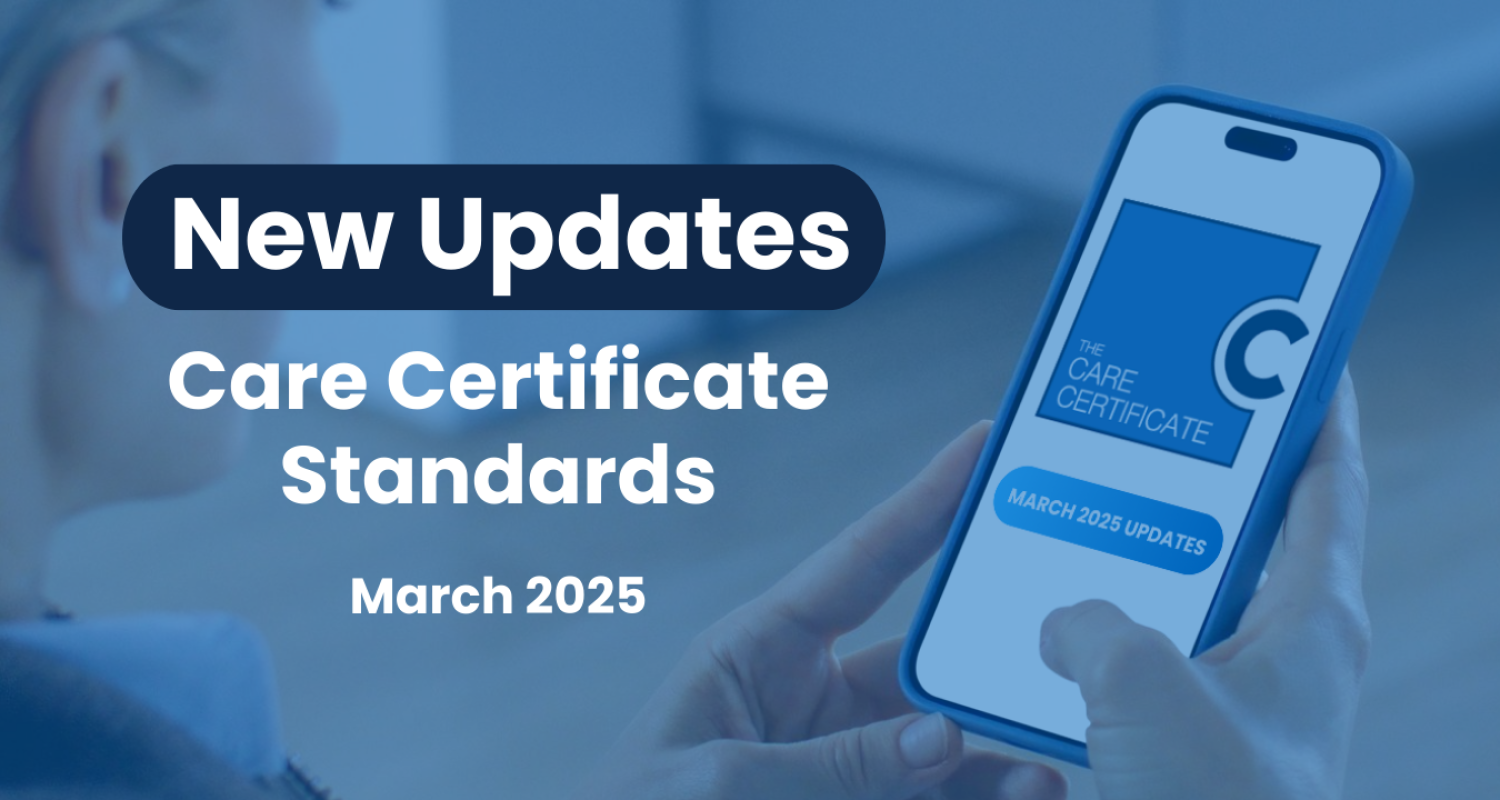Care Certificate Standards Updated for 2025: What’s Changed and What You Need to Know
In March 2025, Skills for Care released a substantial update to the Care Certificate standards, an essential framework for training care workers in health and social care settings. These changes aim to ensure that care workers are well-prepared to meet current care demands, while also reflecting updated legislation and best practices.
Key Changes to the Care Certificate Standards
Whether you’re a care worker, trainer, or employer, understanding these changes is crucial. Below, we outline what’s new in each of the 2025 standards.
What’s changed in Each Standard?
Standard 1: Understand Own Role
- New focus on identifying career and professional development opportunities.
- Acknowledges the role of advocates and significant others in supporting individuals.
Standard 2: Your Personal Development
- Digital skills now included in functional level assessments.
- ‘Learning activity’ added to reflection practices.
Standard 3: Duty of Care
- Clearer definition of the duty of candour now included.
Standard 4: Equality, Diversity, Inclusion and Human Rights (Title updated)
- Stronger emphasis on inclusion and human rights.
- Protected characteristics, bias, and discrimination now explicitly covered.
- Interactions must support culturally appropriate care.
- Clearer guidance on recognising and challenging discrimination.
Standard 5: Work in a Person-Centred Way
- Improved guidance on applying person-centred values.
- Emphasis on relationships important to the individual.
- Mental capacity content moved from Standard 9, updated with legal references.
- Inclusion of emotional distress under recognising pain and discomfort.
- ‘Wellbeing’ now replaces ‘emotional and spiritual wellbeing’ with an expanded definition.
Standard 6: Communication
- Greater focus on assistive technologies and digital tools.
- Behaviour recognised as a form of communication.
- Safe use of digital tools explicitly outlined.
Standard 7: Privacy and Dignity
- Clarifies ways to maintain privacy and dignity.
- Encourages independence and maintaining community relationships.
Standard 8: Fluids and Nutrition
- New requirement to identify and report changes in nutrition/hydration needs.
- Ensures nutrition access for those with liberty or mobility restrictions.
Standard 9: Awareness of Mental Health and Dementia (Title updated)
- Learning disabilities and autism moved to new Standard 16.
- Expanded coverage of mental health, dementia, early signs, and reasonable adjustments.
- Guidance on signposting to appropriate services.
Standard 10: Adult Safeguarding (Title updated)
- Updated terminology to align with the Care Act 2014.
- Legal definition of an adult at risk now included.
- Expanded coverage of risks from technology and restrictive practices.
Standard 11: Safeguarding Children
- No changes made.
Standard 12: Basic Life Support
- No changes made.
Standard 13: Health and Safety
- ‘Manage stress’ revised to include broader mental health and personal wellbeing.
- New guidance on identifying stress triggers and accessing support.
Standard 14: Handling Information
- Data breach reporting processes clarified.
- Access to and secure handling of information added.
Standard 15: Infection Prevention and Control
- Fully revised and expanded.
- Covers chain of infection, PPE use, hygiene, decontamination, safe disposal, and IPC responsibilities.
Standard 16: Awareness of Learning Disability and Autism (New standard)
- Learning disability content moved from Standard 9 and expanded.
- Now includes autism and employer responsibilities.
Access the Full Document
For a detailed look at all the updates, including minor revisions and clarifications, you can access the full document here:
Summary of Changes to Care Certificate Standards – March 2025
Courses to align with the Care Certificate Standards
At CareTutor, our training is designed to be interactive, evidence-based, and accessible, perfect for staff in health and social care.
- To find out which Care Certificate courses are required for Care Home (residential) staff, click here.
- To find out which Care Certificate courses are required for Home Care (domiciliary) staff, click here.
Whether you’re onboarding new staff or refreshing the knowledge of existing team members, our Care Certificate training ensures compliance and promotes best practice.
For full details on the changes, visit the official Skills for Care page on the Care Certificate Standards.
Stay compliant, Stay informed!
If you’d like to speak to one of our training consultants or request a demo, please get in touch.
Email us on: info@caretutor.org
Call us on: 020 3129 5667
